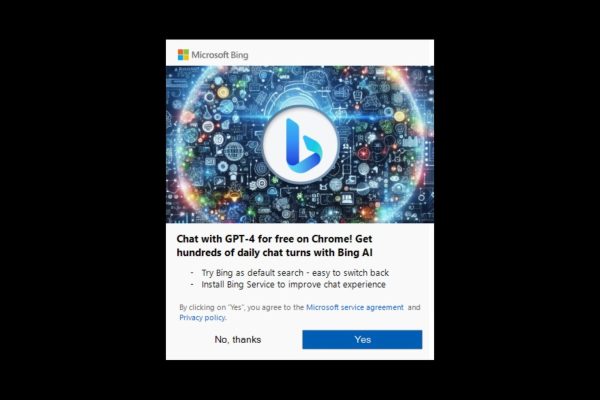Microsoft Continues Aggressive Push For Bing With Annoying Chrome Pop-Ups
Microsoft has reignited its contentious tactics of displaying pop-up notifications within Google Chrome to advertise its Bing search engine. Users report the pop-ups surfaced recently, prompting them to select Bing as their default search engine over Google. This aggressive approach mirrors Microsoft’s prior pop-up campaigns that irked many Windows users due to their disruptive and seemingly unavoidable nature.
Microsoft maintains the pop-ups provide a one-time choice and convenience perks like extra AI assistant uses if accepting Bing. However, critics argue there are better ways to offer options without annoying prompts. Microsoft has drawn fire previously for similar pop-ups on the taskbar and forced browser changes, underscoring frustrations with its frequent pushiness around preferred services.
A History Of Heavy-Handed Promotions

In past years, Microsoft has taken heat for more than just pop-ups. It once automatically migrated Edge users to Bing without consent. Microsoft also faced backlash for a Windows update that unexpectedly defaulted browsers to Edge overnight. While Microsoft aims to direct users to advantages of its offerings, observers argue the company would be wise to take a less disruptive and imposing stance that truly prioritizes choice over covert nudging.
As the dominant Windows-maker, Microsoft understandably wants to steer utilization toward its products and services. However, its persistent pop-up approach and other questionably sneaky moves undermine claims of prioritizing user autonomy. If Microsoft wishes to curry goodwill, it must rethink tactics and adopt a more transparent strategy that emphasizes informed consent over annoying ads masquerading as helpful prompts. Doing so could help the company make genuine progress toward becoming customers’ trusted, not troublesome, digital ally.





